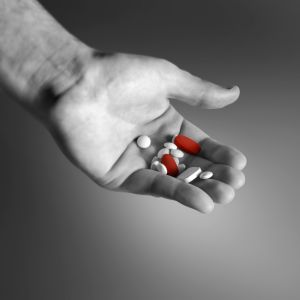On February 2, 2013, the New York Times published an article indicating that drugmakers were not placing as much emphasis on television advertising as in the past. Our Boston injury attorneys were glad to hear this news, as television ads can encourage patients to push doctors for unnecessary and untested pills that may later turn out to be dangerous. 
When a drug is advertised on television, its side effects and serious potential risks are often glossed over or downplayed, although they must be mentioned. Drugs may also be heavily advertised that later turn out to be seriously dangerous to patients. Drug advertising is risky because it encourages those watching the ads to jump into taking a medication without a full understanding. As such, any cuts in advertising on TV could help to keep people safer.
Drug Ads Declining
The New York Times provides some specifics on the decline in the popularity of drug ads on television. According to the Times:
- Spending on advertising name-brand prescriptions on TV has dropped more than 20 percent over the past five-year period. This is a marked contrast in a market that was a fast-growing venue just a few short years ago.
- Drug companies spent an estimated $3.1 billion advertising their products in 2007 according to Nielsen. However, spending fell considerably in 2010 and 2011 in sharp contrast to the advertising push that began when the FDA lifted its regulations in 1997 to allow drug makers to advertise directly to consumers.
The Times also provides some specific potential reasons why drug makers may be slowing down on the advertising. The reasons include:
- Controversy over the ads.
- Complaints from health insurers about the fact that customers were driven to request expensive new drugs.
- Complaints from doctors who also complain that patients pressure them into prescribing new and potentially unnecessary drugs that are heavily advertised.
- The risk that dangerous drugs can more quickly become widespread due to heavy ad campaigns, even if the products are new and untested.
In 2004, the last point was illustrated clearly when Vioxx had to be withdrawn from the market. Vioxx had been very heavily advertised before studies revealed an increase risk of strokes and heart attacks for those on the popular medication. Merck had to pull the drug from the market, but the damage was done and many people were hurt solely because they requested a drug that had been so widely advertised on TV.
Why Drug Ads Are Dangerous
Drug ads are very risky because they are most likely to be for new and potentially untested drugs. The longer a drug is on the market, the more problems come to light and the more confident patients can be that the side effects are well-known (but the less interest in ads there will be, especially if a generic version is available and the drug is no longer a big money-maker).
When a brand new drug is released and suddenly everyone is taking it or asking for it because it is so heavily advertised, then it may start to replace older and safer products. A larger group of people may take the new – and dangerous- drug before any side effects become known and more people could be hurt if it later turns out that the drug was harmful.
If you or a loved one has been injured by a defective drug, contact Jeffrey Glassman Injury Lawyers, LLC for a free consultation. Call (617) 777-7777.
 Boston Personal Injury Attorney Blog
Boston Personal Injury Attorney Blog

